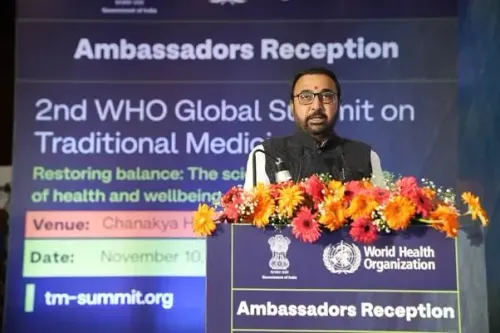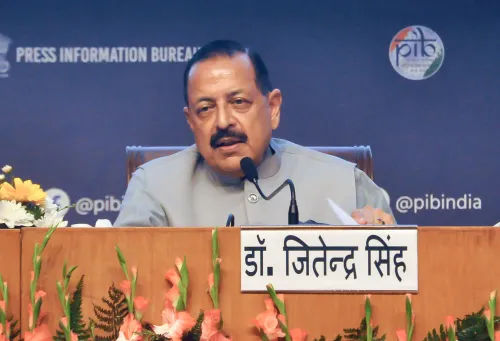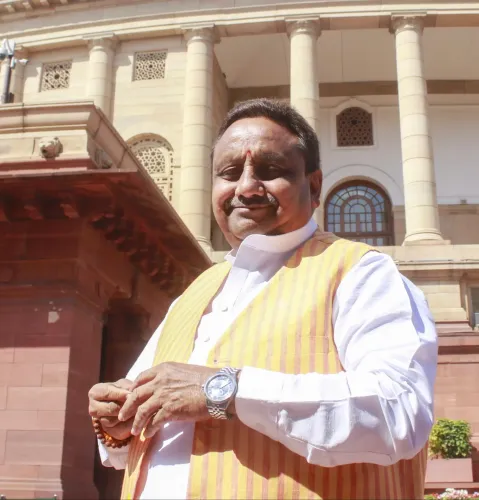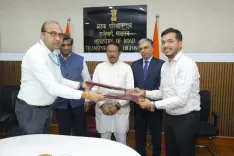Is Blood Transfusion the Foundation of Effective Healthcare and Emergency Responses?
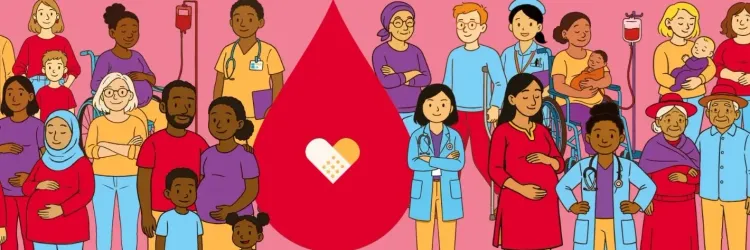
Synopsis
Key Takeaways
- Blood transfusion is essential for effective healthcare.
- Voluntary, unpaid donors are vital for saving lives.
- National health systems must ensure access to safe blood.
- World Blood Donor Day promotes awareness and encourages donations.
- Community engagement is crucial for achieving universal access to safe blood.
New Delhi, June 13 (NationPress) Blood transfusion serves as the fundamental element of efficient healthcare and emergency management, according to Saima Wazed, the Regional Director for WHO South-East Asia, who spoke on Friday in anticipation of World Blood Donor Day.
Celebrated every year on June 14, this year's theme is “Give blood, give hope: together we save lives.”
This day pays tribute to the unsung heroes among us—voluntary, unpaid blood donors—whose straightforward yet impactful act of giving blood saves countless lives daily.
Wazed emphasized that developing robust national health frameworks necessitates addressing the critical and ongoing demand for safe blood and blood products.
However, many individuals, especially in low- and middle-income nations, lack access to safe and prompt transfusion services.
“Blood transfusion is a cornerstone of effective healthcare and emergency response. Whether it’s mothers facing complications during childbirth or children battling severe anemia, and patients undergoing surgeries or living with chronic blood conditions like thalassemia, hemophilia, and sickle-cell disease—blood is vital for survival,” stated the Regional Director.
“In emergencies, such as natural disasters or conflicts, timely access to safe blood can mean the difference between life and death,” she added.
Wazed pointed out that strong national systems combined with a consistent base of voluntary, unpaid donors willing to donate regularly are crucial for achieving universal access to safe blood.
Moreover, the Regional Director noted that all nations in the WHO South-East Asia region have formulated national blood policies in accordance with global health organization recommendations on blood safety.
These policies promote nationally coordinated blood transfusion services based on 100 percent voluntary non-remunerated blood donations (VNRD) and compliance with recognized national or international blood standards.
“Presently, nearly 50 percent of our Member States have reached almost 100 percent VNRD coverage, significantly bolstering the blood supply essential for national health systems. In our region, about 82 percent of all donated blood comes from voluntary, unpaid donors, showcasing strong community involvement and donor motivation,” Wazed mentioned.
Additionally, Wazed affirmed that all blood collected in the SE region is screened for transfusion-transmitted infections (TTIs) and tested for necessary serological parameters.
She called on all governments and health authorities to renew their support for national blood transfusion programs.
“As we observe World Blood Donor Day 2025, let’s remember that each blood donation is not merely a medical act but a demonstration of compassion, commitment, and hope. It serves as a lifeline to someone, somewhere, who may never meet their donor but whose life was profoundly impacted,” Wazed concluded.

